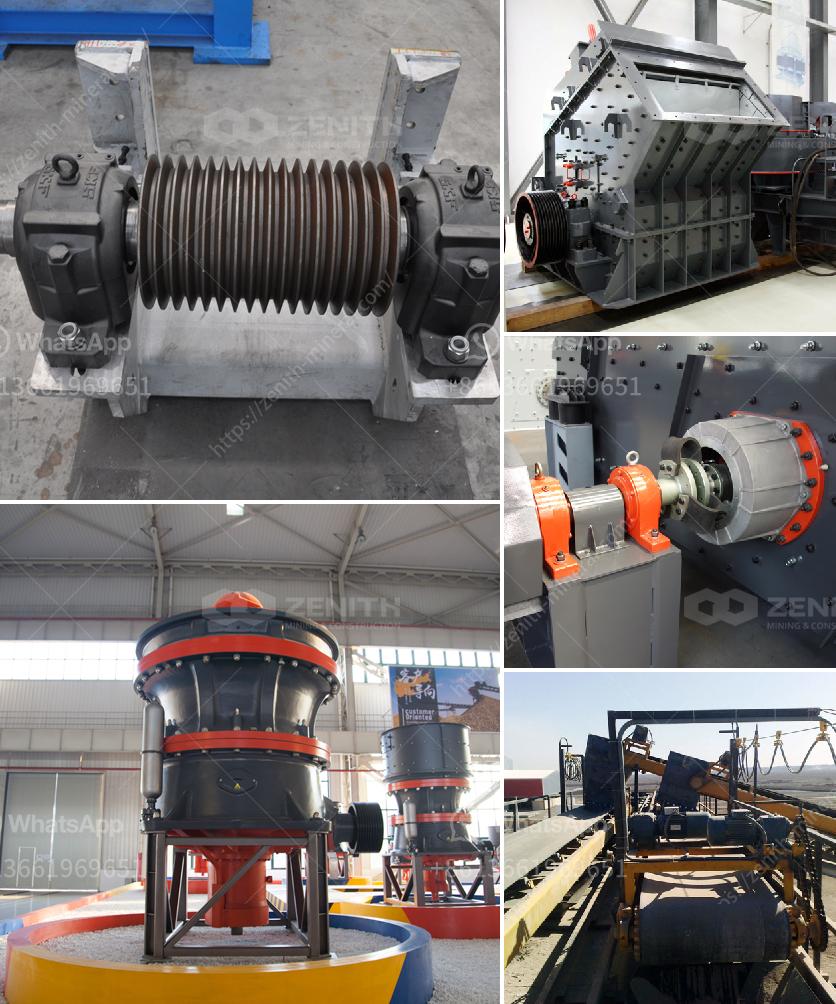Crushers are essential equipment for mining and aggregate processing. Here are the main types of crushers and a brief overview of their suitability:
-
Jaw Crushers:
- Primary Crushing: Ideal for breaking down large materials into smaller, more manageable pieces.
- Advantages: Simple structure, reliable operation, and easy maintenance.
- Best For: Hard and abrasive materials like granite, basalt, and ores.
-
Cone Crushers:
- Secondary or Tertiary Crushing: Great for further reducing material size after initial crushing.
- Advantages: High efficiency, good product shape, and a variety of cavity options.
- Best For: Medium to hard materials like granite, quartzite, and sandstone.
-
Impact Crushers:
- Secondary Crushing: Capable of producing fine material and often used for recycling concrete and asphalt.
- Advantages: Good for shaping purposes and producing a higher quality of particle shape.
- Best For: Less abrasive materials like limestone and concrete.
-
Gyratory Crushers:
- Primary Crushing: Suitable for large-scale operations due to high capacity and efficiency.
- Advantages: Continuous operation and low maintenance.
- Best For: Very hard materials and large scale operations.
-
Hammer Crushers:
- Primary or Secondary Crushing: Uses high-speed rotary hammers to impact the material.
- Advantages: Simple design, high reduction ratio.
- Best For: Soft to medium-hard materials like limestone and coal.
-
Roll Crushers:
- Primary, Secondary, or Tertiary Crushing: Efficient for producing a narrow particle size distribution.
- Advantages: Minimal fines generation and the ability to handle sticky or wet materials.
- Best For: Medium-hard to hard materials like limestone and phosphate.
Which is Good?
Choosing the right crusher depends on several factors:
- Material Characteristics: Hardness, abrasiveness, and moisture content.
- Output Requirements: Desired size and shape of the final product.
- Capacity Needs: Volume of material to be processed.
For hard and abrasive materials, Jaw and Cone Crushers are usually the best. For softer, less abrasive materials, Impact and Hammer Crushers are effective. For large-scale operations, a Gyratory Crusher might be ideal, while Roll Crushers suit specific niche applications, particularly for producing minimal fines.
Always consider consulting with a crushing expert or manufacturer to understand the best crusher type for your specific application.

